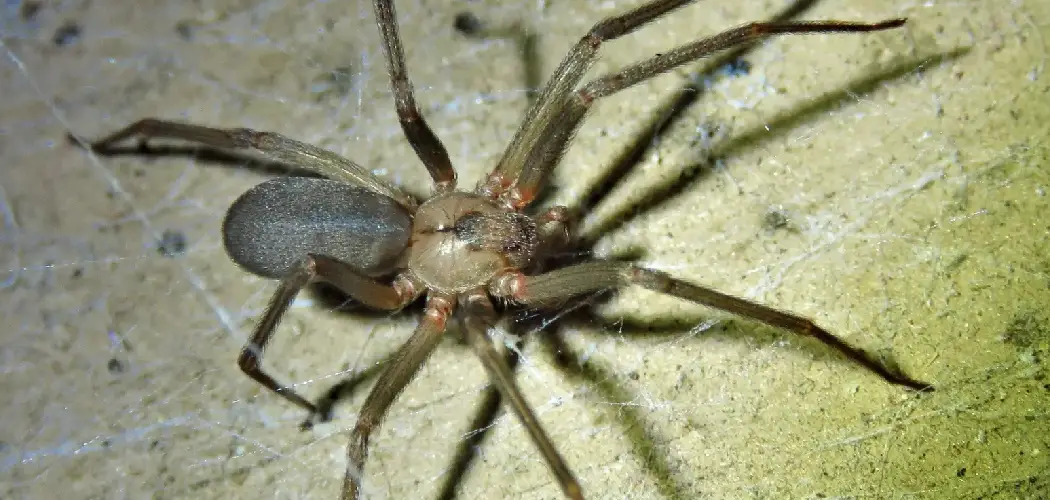Spiders can often make their homes in garages, drawn to the dark, quiet spaces where they can find shelter and prey. While most spiders are harmless and beneficial for controlling other pests, their presence can be unsettling for many homeowners. Preventing spiders in your garage requires a combination of cleanliness, proper storage, and proactive measures to eliminate their habitats. This guide explores effective strategies for keeping spiders out of your garage, including addressing factors that attract them and practical tips for maintaining a spider-free environment.
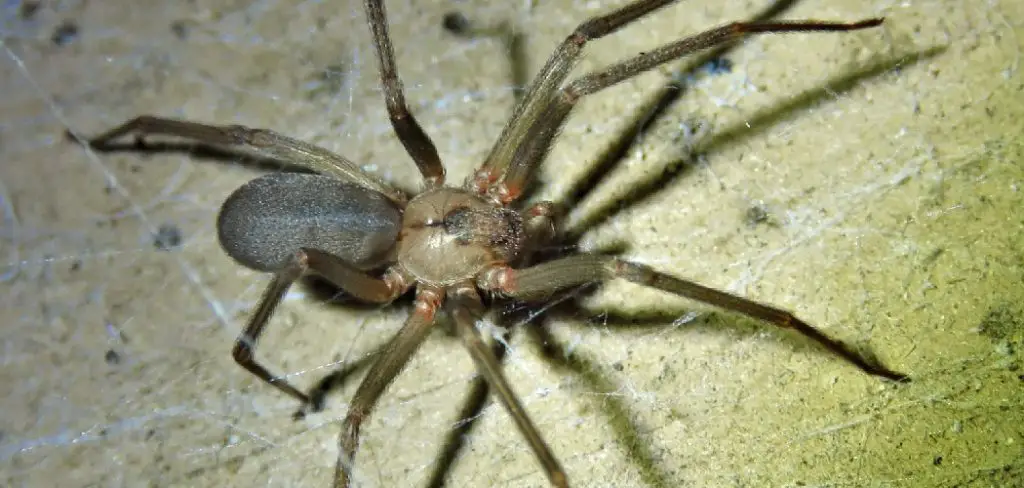
By implementing these strategies, you can reduce the likelihood of spiders residing in your garage, creating a more comfortable and welcoming space. Discover how to prevent spiders in garage areas by following our comprehensive guide, ensuring your garage stays both functional and free from unwanted eight-legged visitors.
Understanding Why Spiders Are Attracted to Garages
Spiders often find garages to be inviting places due to a combination of factors that provide ideal conditions for survival and reproduction. One of the main attractions is shelter and hiding spots. Garages offer a dark and undisturbed environment, which makes them perfect for spiders seeking refuge. Cluttered areas, boxes, and rarely used tools or equipment can create excellent nesting sites, providing the seclusion spiders need to thrive.
Another major factor is the availability of food sources. Spiders feed on insects, and garages can harbor pests like flies, ants, or moths. These insects provide spiders with a steady food supply, making the garage an attractive location. Additionally, moisture plays a crucial role in attracting spiders. Garages with leaks, high humidity, or poor ventilation can become magnets for spiders and other pests. The damp conditions are often the result of plumbing issues, wet items, or inadequate airflow.
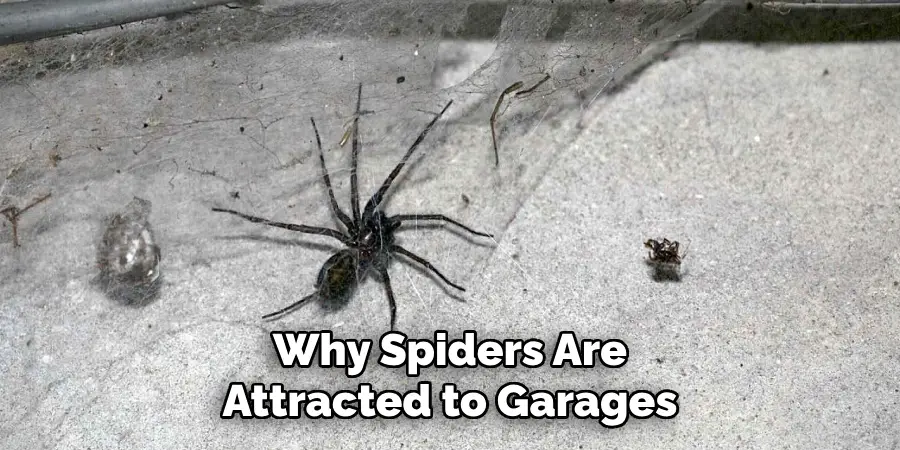
Seasonal changes also contribute to why spiders are attracted to garages. During transitions such as fall and early spring, spiders actively seek shelter from extreme cold or heat. Consequently, you may notice a spike in spider activity as they look for safe havens during these periods. Understanding these factors can help you identify and eliminate conditions that attract spiders, effectively keeping them out of your garage.
How to Prevent Spiders in Garage: Keep the Garage Clean and Decluttered
Step 1: Regular Cleaning
Maintaining a clean garage is your first line of defense against spiders. Make it a habit to sweep or vacuum regularly to eliminate dust, dirt, and debris that can attract spiders and the insects they prey on. Pay special attention to corners, under shelves, and behind appliances, as these spots often accumulate dirt and can become favorite hiding places for spiders. Consistent cleaning reduces the likelihood of spiders finding food and setting up residence in your garage.
Step 2: Remove Clutter
Clutter is a spider’s best friend, providing ample nooks and crannies for them to hide and build webs. Declutter your garage by getting rid of unnecessary items and organizing what remains. Storing boxes and items off the floor can be achieved by installing shelves, which also helps to keep the space organized. Avoid leaving piles of stuff that allow spiders to settle in unnoticed. Use clear plastic storage bins with tight-fitting lids to store items securely where possible. This makes it more difficult for spiders to access them and helps you easily identify contents at a glance without disturbing the storage organization.
Step 3: Regularly Check Stored Items
Make it a routine to inspect stored items, particularly cardboard boxes and old furniture, as these tend to attract spiders. Look for signs of spider activity, such as webs or egg sacs. If you discover these indicators, consider relocating those items or sealing them tightly in containers to limit spider access. Regular checks help you catch potential issues early and adjust your storage methods to deter spiders from settling into your garage.
Step 4: Dispose of Webs and Eggs
Upon discovering spider webs, act quickly to remove them. Use a broom or vacuum cleaner to clear away webs and any spider eggs you might find. Doing so interrupts spiders’ reproductive cycle and discourages future infestations. Regularly disposing of webs and eggs is an effective strategy for maintaining a spider-free garage, ensuring that your space stays comfortable and inviting.
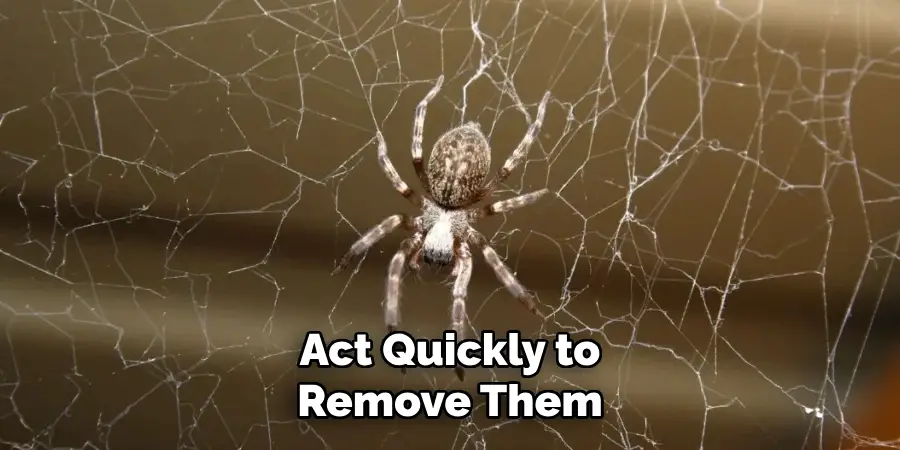
Seal Entry Points and Create Barriers
Creating barriers and sealing entry points are essential steps in preventing spiders from making their way into your garage.
Step 1: Inspect for Gaps and Cracks
Begin by thoroughly inspecting the garage for any gaps, cracks, or openings that might serve as entry points for spiders. Pay special attention to areas around windows, doors, and the foundation where small cracks can often go unnoticed. Use caulk to effectively seal smaller gaps and cracks; for larger openings, such as those around pipes or vents, consider using expandable foam. This prevents spiders from squeezing through and taking up residence in your garage.
Step 2: Install Weather Stripping
Weatherstripping is another effective method for keeping spiders at bay. Install weather stripping on all garage doors and windows to ensure a tight seal, preventing spiders and other pests from sneaking in. Regularly check the condition of the weather stripping and replace it if you observe any wear and tear. A good seal serves as a physical barrier and helps maintain indoor temperature efficiency.
Step 3: Use Screens on Vents and Windows
Installing screens on windows, vents, and any other openings in your garage can significantly reduce the chance of spiders entering. Ensure the screens are secure, intact, and without holes or tears that could provide access to unwanted pests. Screens serve as a frontline defense, allowing for ventilation while keeping spiders and other insects out.
Step 4: Keep Garage Doors Closed
To minimize entry points for spiders, make it a routine to keep garage doors closed whenever they are not in use. Open doors create direct pathways for spiders and other pests to invade. If ventilation is a concern, consider installing a screen door to allow airflow while blocking potential intruders. Regularly closing garage doors creates an additional barrier that supports a spider-free environment.
Reduce Food Sources and Moisture
Step 1: Control Insects
Reducing the number of insects in your garage can significantly decrease the spider population, as spiders usually follow where their prey goes. Consider using insect traps or baits strategically placed around common pest entry points or areas where you’ve noticed insect activity. Additionally, address any underlying issues that might attract insects to your garage, like food spills or improperly stored trash. Keeping your garage clean and promptly disposing of waste reduces the likelihood of insect infestations and the spiders that feed on them.
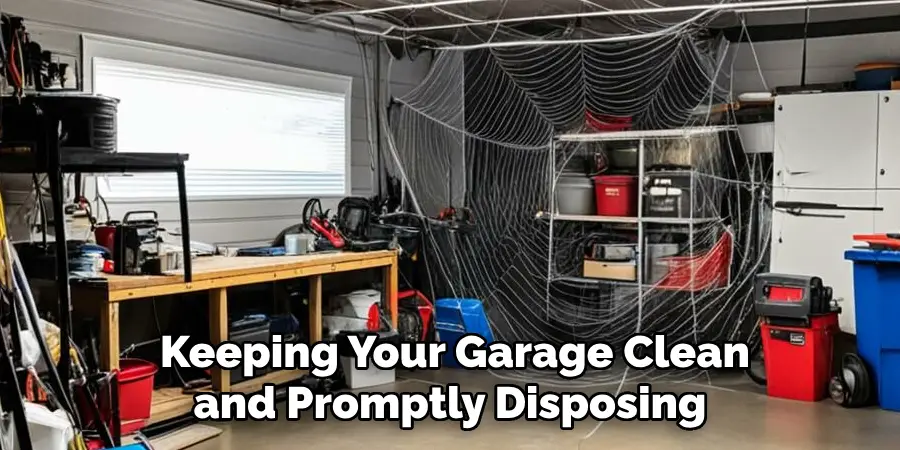
Step 2: Remove Food Sources
One effective way to manage pests in your garage is to eliminate or secure food sources. Store any food items in sealed containers that prevent insects and rodents from accessing them. Make cleaning up spills and crumbs an immediate priority to avoid attracting pests. If you keep pet food in your garage, ensure it is stored in airtight containers, as the scent can lure insects and other vermin. By removing these food sources, you create an inhospitable environment for both pests and spiders.
Step 3: Fix Moisture Issues
Spiders and insects are drawn to moist environments, so addressing any moisture-related vulnerabilities in your garage is crucial. Regularly check for leaks or signs of water damage, such as water stains or warped wood. Repair identified leaks promptly and ensure that your garage is properly ventilated to reduce humidity levels. You might also consider using a dehumidifier if your garage routinely experiences damp conditions. Controlling moisture deters spiders and prevents a wide range of moisture-related issues.
Step 4: Manage Yard Debris
Maintaining your outdoor spaces can complement indoor pest control. Remove leaves, debris, and wood piles regularly, particularly those close to the garage, as they can harbor insects. Consider using mulch or landscaping fabric to minimize potential hiding spots and habitats for insects. By managing yard debris, you help ensure that insects are kept at bay, thus reducing the attractiveness of your garage to spiders. Maintaining a tidy outdoor area creates a more effective and comprehensive pest management strategy.
Use Natural Repellents and Chemical Solutions
Step 1: Essential Oils
Certain essential oils, such as peppermint, tea tree, or citrus oils, act as natural spider repellents. These oils are effective due to their strong scents, which spiders find unpleasant. Mix a few drops of your chosen essential oil with water in a spray bottle to utilize this method. Apply the solution generously around the garage’s entry points, corners, and any areas where you’ve observed spider activity. Not only do essential oils help keep spiders at bay, but they also leave a pleasant fragrance in your garage, enhancing the overall ambiance.
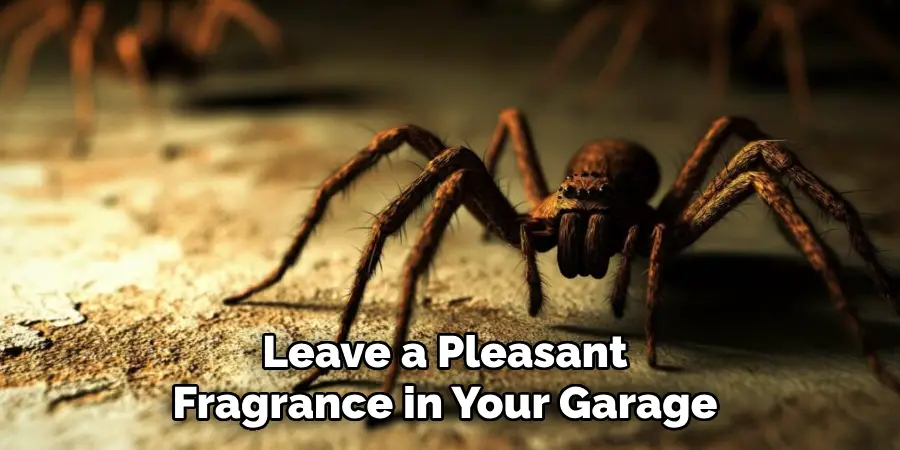
Step 2: Vinegar Solution
Vinegar is another natural deterrent for spiders, offering an accessible, cost-effective solution. Create a vinegar repellent by mixing equal parts vinegar and water in a spray bottle. Mist this mixture around doorways, window frames, and any spider-prone areas within the garage. The acetic acid in vinegar repels spiders and disrupts their pheromonal trails, reducing their likelihood of returning. This method is a simple yet potent way to diminish spider presence without resorting to harsh chemicals.
Step 3: Use Commercial Repellents
Commercial spider repellents can be a more robust option if natural solutions prove insufficient. These products are specially formulated to target spiders and come with detailed instructions for their safe and effective use. Look for repellents that are specific to spiders, and always adhere to the manufacturer’s guidelines. Commercial repellents may vary in form, including sprays, traps, or ultrasonic devices, providing options that suit your specific needs and preferences for maintaining a spider-free environment.
Step 4: Regularly Reapply Repellents
To ensure continuous spider deterrence, it is crucial to regularly reapply your chosen repellents. Their effectiveness can diminish over time, especially after cleaning activities or exposure to rain. By maintaining a consistent schedule for reapplication, you reinforce your defense against spider invasions. Routinely refreshing the repellent coverage helps sustain a hostile environment for spiders, supporting an overall strategy to keep your garage free from these unwelcome pests.

Conclusion
Keeping spiders out of your garage is achievable with cleanliness, preventative measures, and regular maintenance. By understanding what attracts spiders and taking steps to eliminate their habitats, you can create a less inviting environment for them. Regular cleaning, sealing entry points, and reducing food sources effectively prevent spider infestations. Additionally, utilizing natural repellents can provide an extra layer of protection.
Staying vigilant and monitoring your garage for spider activity can help you maintain a comfortable and pest-free space. With a little effort and diligence, you can enjoy a garage that is free of unwanted arachnids, allowing you to use the space for its intended purpose. Knowing how to prevent spiders in garage areas ensures peace of mind and the satisfaction of a job well done.
About
Angela is the chief editor of Indoorense. She began her career as an interior designer before applying her strategic and creative passion to lifestyle and home.
She has close to 15 years of experience in creative writing and online content strategy for housekeeping and cleaning,home decorations as well as other efforts.
She loves her job and has the privilege of working with an extraordinary team. She lives with her husband, two sons, and daughter in Petersburg. When she’s not busy working she spent time with her family.

